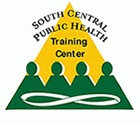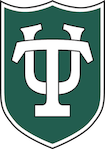
Public Health Economics
Course Description:
Economics is the study of choices in a world of scarcity. In this course we explore how markets function by examining the demand behavior of consumers and the supply behavior of firms. We explore how market-based factors and governmental policies impact market outcomes. The concepts of private and social welfare are introduced as a framework for assessing the performance of markets. The course concludes with an application of economic tools to the policy issue of cigarette smoking. The material is quite general in nature, and is intended to improve the ability of preparedness professionals to project how markets will respond to significant public health events.
Target Audience
Academic Faculty/Staff, Federal Government Employees, State Government Employees, Local Government Employees, Non-Government Employees and Students
Learning Objectives
- Identify how supply and demand behaviors affect market outcomes (price and quantities)
- Identify how government policies (taxes, price controls) impact market outcomes (prices and quantities)
- Evaluate the impact of policy interventions on market efficiency (private economic surplus/welfare)
- Differentiate between private economic surplus and social surplus and understand the potential importance of externalities in public policy
Instructor:

David Becker Ph.D.
David Becker is an Assistant Professor at UAB in the Department of Health Care Organization and Policy. He received his B.A. and Ph.D. in Economics from the University of California, Berkeley. Prior to attending graduate school, Becker was a researcher at the National Bureau of Economic Research (Stanford, CA; 1997-99) and a healthcare consultant with The Lewin Group (1996-97). Professor Becker specializes in health, labor and regulatory economics and has published in peer-reviewed publications including the Journal of Health Economics, Health Services Research and the Journal of the American Medical Association.
Available Credit
- 3.00 Participation/CETulane Professional and Continuing Education (PaCE) awards 3.00 hour(s) of credit for completing Public Health Economics
Price
Required Hardware/software
System Settings
This course is designed to work most effectively if your computer and internet connection meet certain minimal requirements. This course can be accessed using a Windows 10 PC or a Mac with High Sierra1, Mojave, or Catalina. Pop-up blockers should be disabled when viewing the course. Internet Explorer 11 (for Windows 10), or the current version of Google Chrome, Mozilla Firefox, or Apple Safari (for Windows 10 and or Mac) is required. Many of our courses require Java and JavaScript enabled.
Links to External Websites
Links to websites outside this course will open in a new window or tab. Some browsers may minimize the course window. If this occurs, maximize the course window to return to the course.
Adobe Acrobat Reader (for desktops and laptops)
Adobe Acrobat Reader is required to access some documents in this course. If you need to download a free copy of Acrobat Reader, click here.
Internet Connection Speed
A minimum download speed of 1.5 Mbps is recommended for an optimal experience, which is commonly the speed associated with a basic DSL or a cellular/satellite connection. A faster connection, such as cable or fiber service, with further enhance your online experience. A Wi-Fi connection is generally acceptable, but it is dependent upon one of the two services mentioned above. You can check your internet connection speed at http://www.speedtest.net/.

 Facebook
Facebook Twitter
Twitter LinkedIn
LinkedIn Forward
Forward